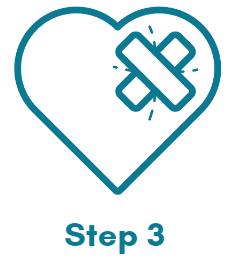Therapy for Depression
Have you been feeling sad or discouraged about the future?
Do you feel like a failure or blame yourself for the things that haven’t gone well in your life?
Do you struggle to make decisions and have a hard time getting out of bed or completing typical daily activities?
Are you noticing that you’re irritable or agitated?
Have you lost your sense of pleasure in the things that once brought you joy or even stopped doing those things completely?
If you answered yes to the above questions and notice that your mood is getting in the way of your daily activities, you might be experiencing depression and could benefit from therapy.
How can New Moon Psychotherapy help?

1 in 8 Canadians will experience depression at some point in their lives.
Depression is the leading cause of suicide.
While it might be hard to imagine that things might improve, research suggest otherwise. There are therapies that can help you break free from this rut and begin living a fulfilling life filled with joy and connection.
Our clinical team works extensively with individuals experiencing depression. Here are some of the therapies that we offer.
Cognitive Behaviour Therapy (CBT)
CBT fights depression by changing our thoughts and behaviour. Our thoughts, emotions, and behaviour are interconnected. The way we think will impact our emotion and it will also impact our behaviour. The behaviours that we engage in will impact our emotions and will also impact our thoughts. When you get into a depressive cycle of thinking, feeling, and acting, it can be difficult to break out of it on your own. Countless studies show that CBT quickly and effectively facilitates this change.
Mindfulness
When we experience depression, our minds are stuck in the past thinking of the things that were or could have been. Mindfulness helps us find our way back into the present moment and teaches us a new way of relating to depressive thoughts and physical sensations.
 Somatic Psychotherapy
Somatic Psychotherapy
Often depression and other mental health conditions are experienced physically such as chronic pain, digestive difficulties, sleep problems, etc. Somatic psychotherapy focuses on releasing these physical experiences through awareness and various techniques such as breathing exercises, physical exercises, mindful movement, and grounding.
Sensorimotor Psychotherapy
When traditional talk therapy hasn’t worked, sensorimotor psychotherapy might. This approach is drawn from research in physiology, neuroscience, psychology, and sociology and works by making us aware of how our bodies communicate our emotions. This can give you control over the difficult emotions associated with depression.
Sensorimotor and Somatic psychotherapies are particularly helpful when CBT or traditional talk therapy has not been effective.
Dialectical Behaviour Therapy Skills (DBT)
If you’re experiencing suicide ideation, or have attempted suicide, DBT skills can be incredibly helpful. They can teach you how to regulate your emotions and tolerate distress.
Your therapist might decide that there are other approaches that might be helpful.
Not every therapy will work for everyone at all points in time so it’s important to find the correct approach to meet your current needs.
 What if I don’t know what therapy is right for me?
What if I don’t know what therapy is right for me?
Starting therapy and choosing the right therapist can be overwhelming. We want to make this process as stress free as possible. If you choose to meet with a therapist at New Moon Psychotherapy, you will first have a brief call with our administrative assistant or be asked to complete a brief intake form. The information that you share will help us determine which therapist would be a good fit for you.
You will be connected with the therapists that you are considering working with for a complimentary 15-minute consultation. This is a chance to ask any questions that you might have and to get a feel for the therapists personality so that you can decide if this therapist would be the right fit for you.
Once you choose a therapist, that therapist will perform an assessment and discuss your therapeutic goals. They will then use this information to create a treatment plan that is tailored to your unique needs.





